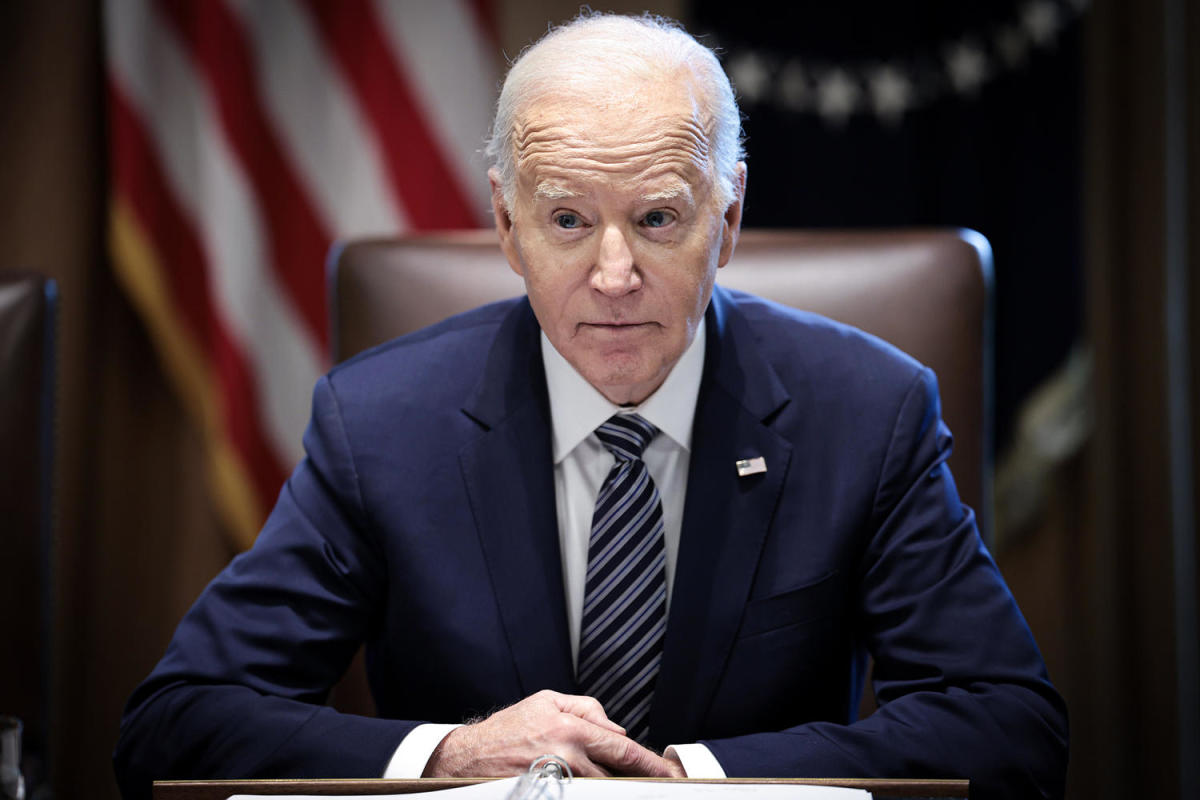It now seems likely that Donald Trump will be able to run for president this year without having faced any legal penalties for his effort to overturn the last presidential election. To many of his supporters, of course, this outcome is just. But it is also striking.
Most Americans believe that Trump committed serious crimes, polls show. He chose not to order the authorities to stop a violent attack on the Capitol, even when his vice president was in danger. And he directed state election officials to “find” him votes. Even so, Congress did not sanction him, and neither of the criminal trials related to his actions may even start before the 2024 election.
Sign up for The Morning newsletter from the New York Times
I’ll explain how this happened, by focusing on the three crucial groups of people: Republican senators, Democratic (or Democrat-appointed) prosecutors and Republican appointees on the Supreme Court.
1. Republican senators
The simplest path for addressing Trump’s attempts to overthrow an election was always in Congress. Congress has the power to impeach officials and bar them from holding office again, and it has used this power before. Most criminal convictions, by contrast, do not prevent somebody from holding office.
In early 2021, Congress seemed to be on the verge of barring Trump. The House impeached him, with 10 Republicans joining every Democrat in voting to do so. In the Senate, convicting him would have required at least 17 Republicans.
That seemed plausible. Mitch McConnell, the Republican leader, signaled that he supported impeachment. As people close to him told The New York Times, McConnell believed that the process would make it easier to purge Trump from the party. Other Republican senators sent similar signals.
Ultimately, though, they backed down. Trump remained popular with Republican voters, and many senators feared confronting him. McConnell played the central role. He delayed the trial until after Trump left office — and some senators then justified their acquittal votes by saying Trump was no longer president.
Seven Republicans, a mix of moderates and conservatives, did vote to convict: Richard Burr of North Carolina, Bill Cassidy of Louisiana, Susan Collins of Maine, Lisa Murkowski of Alaska, Mitt Romney of Utah, Ben Sasse of Nebraska and Pat Toomey of Pennsylvania. Others who were witheringly critical of Trump in private — such as Roy Blunt of Missouri and Rob Portman of Ohio — voted to acquit, making it possible for Trump to become the Republican nominee this year.
2. Democratic prosecutors
After the Senate acquitted Trump, the next focus became the criminal investigations of his postelection actions. But these investigations moved slowly.
At the Justice Department, Attorney General Merrick Garland and his deputy, Lisa Monaco, worried that an indictment of Trump would appear partisan and told aides to proceed with extreme caution. Their caution was reminiscent of Robert Mueller’s decision as special counsel in 2019 not to announce a conclusion about whether Trump had broken the law during his 2016 campaign — even after Mueller presented such evidence. In both cases, top prosecutors were hoping to remain above the political fray.
To some Justice Department officials working for Garland and Monaco, this was an impossible goal in today’s political atmosphere. As The Washington Post put it: “Some prosecutors below them chafed, feeling top officials were shying away from looking at evidence of potential crimes by Trump and those close to him.” The FBI did not open a probe into election interference for more than a year, and the Justice Department did not charge Trump until August 2023.
The investigation, as the Times described, was methodical, slow and at times dysfunctional.
The one state prosecution for election interference, in Georgia, has also been chaotic. Last year, Fani Willis, the district attorney in Fulton County, filed a sprawling indictment involving 18 defendants, which made a speedy trial impossible. Willis also assigned the case to a lawyer she was secretly dating, causing further delays.
3. Republican justices
Even with the Justice Department’s go-slow approach, Trump’s federal trial for election interference had a chance to finish before Election Day, but the Supreme Court intervened. It did so in a way that caused several delays.
First, the justices declined to hear Trump’s appeal — in which he claimed that presidents are immune from prosecution — on the expedited schedule that Jack Smith, the Justice Department’s special counsel, requested. Then the justices did agree to hear the case. And during oral arguments last week, the Republican-appointed majority suggested it would issue a broad ruling setting a new precedent, which could take months.
On their own, each of these decisions can be defended. The overall approach, however, is very different from the one the court took in 2000 during Bush v. Gore. Then, the justices acted urgently, recognizing the political calendar, and said that their decision was a narrow one, applying only to a single election. This time, as Justice Neil Gorsuch put it, they seek a ruling “for the ages.”
Critics have pointed out that in both 2000 and 2024, Republican-appointed justices chose an approach that benefited the Republican presidential nominee. A fast, narrow ruling in 2000 stopped the vote count in Florida and let George W. Bush take office. A slow, broad ruling in 2024 may push the start of Trump’s federal trial past Election Day.
All these decisions — by senators, prosecutors and justices — have played into Trump’s central legal strategy: delay. It’s a strategy he used to fight investigations during his business career, and it seems to have worked again in this campaign.
c.2024 The New York Times Company

Amanda Smith is a dedicated U.S. correspondent with a passion for uncovering the stories that shape the nation. With a background in political science, she provides in-depth analysis and insightful commentary on domestic affairs, ensuring readers are well-informed about the latest developments across the United States.





